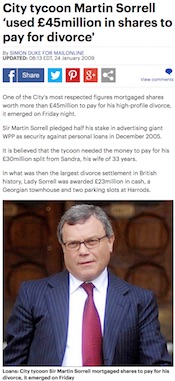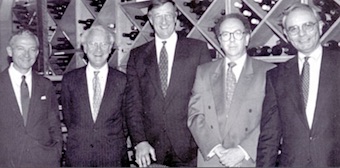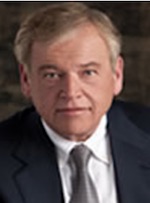American Legion Cmdr. Charles Schmidt, presiding at its conference in Las Vegas Aug. 18-24, has been asked to look at placement of “America” on millions of beer bottles.
Bottles of Budweiser not only re-name the beer “America” in large letters, but sport such sacred U.S. texts as “E Pluribus Unum” and four lines of words to the Star Spangled banner. “Land of the free” and “Home of the brave” are also used.
|
|
Instead of the Budweiser logo, in its place is “US” and “United States of America” in a coat of arms setting.
Who is responsible for this atrocity?
AB InBev, the Belgian-based company that bought Anheuser-Busch in 2008, bears chief responsibility.
But also responsible are the two conglomerates that handle AB InBev’s ad/marketing strategy and media buying—U.S.-based Omnicom ($15.4 billion revenues) for the former and U.K.-based WPP ($19.4) for the latter. U.S. ad budget alone is $1.68 billion. It is the world’s largest beer brewer. Martin Sorrell heads WPP and John Wren, OMC.
The U.S. armed services repelled dictators in World War II who threatened U.S. liberties. New threats to press freedom, including access to news sources, are now coming from foreign and U.S.-owned entities and we hope the Legion as well as the Veterans of Foreign Wars will look into this. It is a battle fought with words but the stakes are similar.
The conference in Reno has drawn 9,000 members and their families. Total membership in the Legion is 2.2 million.
We Get Zapped by OMC, WPP
No one has talked to us from either OMC or WPP in about 20 years. They rival PRSA in being tight-lipped. We have never written an inaccurate word about any of the three so we label their behavior insensitive and un-American. They have pulled the same caper on millions of beer bottles and cans emblazoned with “America” that wind up in public and private trash cans.
|
|
Would any member of the Legion or VFW approve of this use of “America”? We doubt it.
This is a PR disaster for Bud, which is brewed in the U.S. At two of the most popular bars in Westhampton Beach, American-made and owned Coors Light is the No. 1 brew.
Vast Swath of PR Flattened
We’re not only upset with wrongful use of “America” but with the carnage that WPP and OMC have wreaked on the U.S. PR counseling industry. Using borrowed funds and paying huge sums for PR firms, they and other congloms bought 16 of the 25 firms on the O’Dwyer rankings, from which they were pulled.
A casualty of WPP’s hostile takeover of the J. Walter Thompson Co. in 1980 was the fifth-largest U.S. PR operation, the JWT PR department that billed $6 million in the late 1970s and employed 175 in six U.S. offices and 18 abroad. It ceased to exist.
Ketchum, which was $13M in debt in 1996, was bought that year by OMC for $68M in cash and stock. Chairman Paul Alvarez got $3.4M in stock while president Dave Drobis got $2.2M.
|
|
The previous generation of Ketchum owners howled that they were getting far less than the $125 per share given to Alvarez, Drobis and others. They were told to be silent or the deal would collapse and they would get nothing.
Departing execs in 1993-95 had drained the treasury of $11.4M by having their stock bought back at $60 a share when the book value was -$1.42. Staff continued to get raises, bonuses, dividends, etc.
Details were in a 94-page “S-4” filing with the SEC. DeLoitte & Touche said there was “substantial doubt” about the firm’s “ability to continue as a going concern.” It lost $7.5M on $127M in revenues in 1995.
U.K. Purchase Was Big Mistake
Ketchum had bought Group PR, London, in 1991. It then sued the owners saying $240K had been improperly removed from the treasury. It lost the suit and had to pay not only its own legal costs but $500K of the defendants. A $4M write-down was taken in 1996.
A blow to the ad side was loss of the $125M Acura of American Honda account, handled in Los Angeles.
Alvarez was quoted in the April 18, 1994 New York Times ad column of Stuart Elliott as saying that the New York was referred to by staffers as having “the Ketchum curse” because of chronic poor performance. NYT dropped its daily ad column two years ago after more than 70 years, apparently due to lack of cooperation by the ad community.
Alvarez, Drobis Courted, Then Snubbed Us
The amount of attention given to this reporter by Alvarez and Drobis far exceeded that of any other PR firm or company including Byoir.
They took us to numerous lunches, dinners, nights on the town attending plays and events of many types, hosted us at the tennis tournament in Forest Hill, and played golf and tennis with us at their own clubs, our tennis club, and PR Counselor Academy resort locations, and sought us out at national PRSA conferences.
We were welcome in the homes of Alvarez and Drobis and attended the wedding of Alvarez. We were invited to a dinner at “21” celebrating the 20th anniversary of Alvarez with Ketchum. We spent a weekend at the Oglebay golf course outside of Pittsburgh with Ketchum's senior leadership team.
They were obviously “phony friends” since both shut us out after we reported details of the S-4 SEC filing. Apparently they expected us to ignore the S-4. Or, having sold to OMC, they had no further use for us.
Alvarez, then 55, left the firm in 1997, less than a year after its purchase. Drobis retired at 62 in 2003.
Sorrell Highest Paid U.K. Exec
 |
Sorrell’s 2016 pay of $62M was more than twice the pay of No. 2 on the list of the 100-highest paid U.K. executives--$28.8M, paid to Carnival’s Arnold Donald. Sorrell actually took a huge pay cut from 2015 when he earned $90.8M.
U.K. media give Sorrell kid glove treatment to the point of inaccuracy.
The Daily Mail in 2009 said his divorce in 2005 from Sandra Sorrell, costing him a record $51.5M, came because she “cited his obsession with work as the reason.”
However, other media including Advertising Age, said Sandra Sorrell, an American, cited an affair that Sorrell had been having with a secretary in the Rome office since 1993. Her 472-page filing said Sorrell “marginalized” and “dehumanized” her and he “discarded her from his affections.”
The Daily Mail story started out by saying, “One of the City’s most respected figures mortgaged shares to pay for the divorce.”
Ad Age’s story started with, “Even the most ‘special’ of men, as Martin Sorrell was described in his divorce proceedings, can be humbled in a messy marital breakup.” That sounded like there was some question as to whose fault the divorce was.
Sorrell, acknowledging criticism for his continued reign at the top of U.K. pay rankings, says it is justified by 30 years spent taking the business from a £1 million capitalization to the £19 billion it is today. Debt is $8.5B or 67% of net equity.
OMC Sues Critic of Wren’s Pay
|
|
Twenty funds and stockholder groups criticized Omnicom for bypassing a free SEC process to sue stockholder John Chevedden, a critic of OMC pay and governance practices.
Chevedden was sued in four federal courts for trying to block OMC execs from having exclusive access to stockholder voting prior to the annual meeting. He and others have criticized OMC’s pay practices, which included a package worth $84.5 million to CEO John Wren in 2012.
U.S. District Courts in New York and Boston rejected the OMC actions.
Chevedden claimed that such actions have a “chilling effect” on stockholder democracy.
A letter March 17, 2014 raps OMC for having “chosen to pursue an expensive litigious process rather than the time-honored SEC route to stop an investor from submitting a resolution for a vote at the 2014 stockholder meeting.”
Such suits “diminish the authority of the SEC and are unnecessary,” the letter says.
Litigation Called "Costly"
Litigation, it continues, “is costly to all parties involved—the shareholder being sued, the corporation bringing the suit, and the court system, which must spend taxpayer money and judicial time in mediating a process that has been otherwise properly adjudicated by the no-action process at the SEC for a much lower cost to both the proponent and the corporation.”
Many of Chevedden’s proposals have historically garnered from 40-90% of the votes and his resolutions often receive a majority of such votes, the letter says. Chevedden files 100 corporate proposals a year and says 20-30% of them pass. He owns stock in 80 companies and has been sued a total of eight times in recent years, he told Corporate Crime Reporter. Companies are losing at the SEC so they are going to federal court says CCR editor James McRitchie.
Chevedden and GMI Ratings, co-founded by Nell Minow, have criticized OMC on a number of practices besides allegedly outsize pay packages including a board of directors whose members stay too long, perhaps losing their independence and objectivity.

 Charles Schmidt
Charles Schmidt

 Omnicom CEO John Wren
Omnicom CEO John Wren
 There’s a fine line between newsjacking and taking advantage, aka ambulance chasing. Our job as PR professionals is to tread it carefully.
There’s a fine line between newsjacking and taking advantage, aka ambulance chasing. Our job as PR professionals is to tread it carefully. PR firms need to be mindful of ways their work product may be protected by the attorney-client privilege whenever working with a client’s internal legal team or its external legal counsel.
PR firms need to be mindful of ways their work product may be protected by the attorney-client privilege whenever working with a client’s internal legal team or its external legal counsel. Manuel Rocha, former US ambassador and intenational business advisor to LLYC, plans to plead guilty to charges that he was a secret agent for Cuba.
Manuel Rocha, former US ambassador and intenational business advisor to LLYC, plans to plead guilty to charges that he was a secret agent for Cuba. CEO mentoring is an often-overlooked aspect of why CEOs are able to make good decisions, and sometimes make bad ones—all of which intersects with the role and duties of a board.
CEO mentoring is an often-overlooked aspect of why CEOs are able to make good decisions, and sometimes make bad ones—all of which intersects with the role and duties of a board.  How organizations can anticipate, prepare and respond to crises in an increasingly complex world where a convergent landscape of global challenges, threats and risks seem to arrive at an unrelenting pace.
How organizations can anticipate, prepare and respond to crises in an increasingly complex world where a convergent landscape of global challenges, threats and risks seem to arrive at an unrelenting pace.


 Have a comment? Send it to
Have a comment? Send it to 
No comments have been submitted for this story yet.